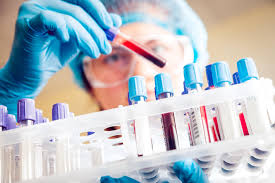To reduce the risk of heart disease, it is very important to keep cholesterol levels under control. Now scientists have made a big discovery in this direction. They have found that certain bacteria found in the intestines can help reduce the risk of heart disease by reducing cholesterol. Researchers from the Broad Institute of MIT and Harvard have made this discovery.

Till now scientists have not been able to fully understand how the bacteria living in the intestines affect health. In a new study, researchers have found that certain bacteria found in the intestines can reduce cholesterol. This reduces the risk of heart disease. Researchers have reported in their study published in the journal 'Cell' that they have identified several species of bacteria found in the intestines. These bacteria digest cholesterol. This reduces the cholesterol level in the body.
Data from more than 1400 people were analyzed.
For the study, researchers analyzed data related to more than 1400 participants included in the Framingham Heart Study. This is a project that has been going on for decades, in which the risk factors of heart disease are studied. Researchers found that bacteria called 'Oscilobacter' absorb and metabolize cholesterol from their surroundings. People who had higher levels of this bacteria in their intestines were found to have lower cholesterol levels. Researchers also discovered how these bacteria break down cholesterol.
What do the research results say?
The results of this research suggest that treatments that affect the intestinal microbiome may help reduce cholesterol in people in the future. This study also plays a role in enabling more in-depth research on how changes in the intestines affect health and diseases.
Laboratory tests and human trial results

Ramnik Xavier, co-author of a study, says that our research links the results of human trials to the tests conducted in the laboratory. This tells us how intestinal bacteria can help keep the heart healthy by reducing cholesterol. Now scientists are trying to discover other pathways present in the intestinal microbiome, which can be influenced to reduce cholesterol. This may provide a new direction in the treatment of heart disease in the future.
Photo Credits: Google



.webp)






